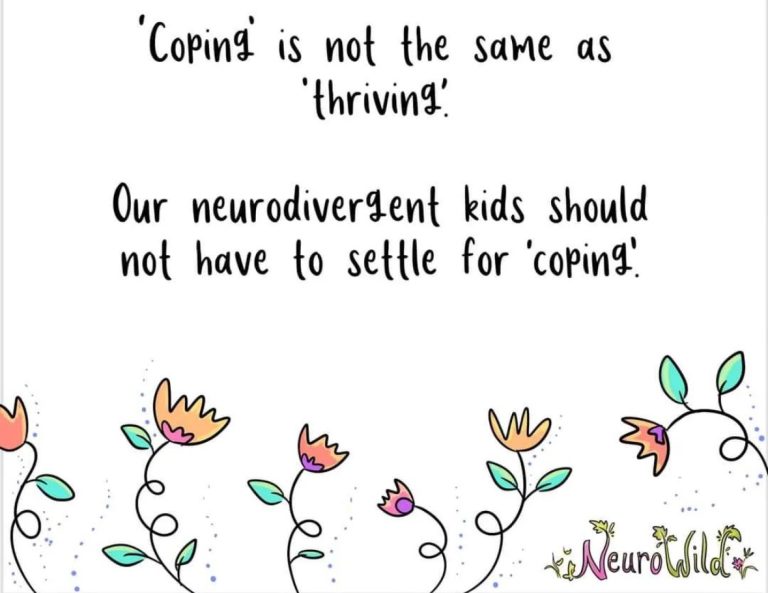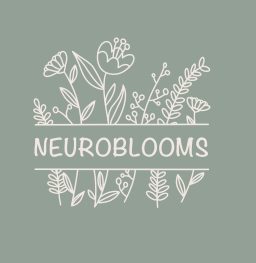SEND System
Special Educational Needs and Disabilities
Some children and young people have SEND that may affect their ability to attend, engage and reach their true potential within education.
Neuroblooms, in collaboration with Find the Key Speech and Language Therapy, will work alongside you to navigate the complex SEND systems from school-based support and recognition of your child's needs to achieving an EHCP (Education Health Care Plan).
We aim to empower and equip parents and carers with the knowledge, skills and confidence to ensure their children receive the right education they are entitled to.
Links for more information on SEND

Autism and ADHD
Autism and ADHD are within the Neurodivergent umbrella which also includes dyslexia, dyscalculia, epilepsy, hyperlexia, dyspraxia, OCD and Tourette syndrome. These are all different ways of thinking and experiencing the world around us. A lot of information is based on the medical models which focus on the deficits of being neurodivergent. At Neuroblooms, I consider Autism and ADHD as a different way of being rather than a ‘disorder’, ‘deficit’ or something that needs fixing.
Neuroblooms is a neuroaffirming business and it is not about training individuals to be ‘less autistic’ or to conform to societal norms (i.e being or behaving neurotypically).
I am ImROC Autism Peer Support trained and can be there to support you to achieve your outcomes.
Often there is little information about what it means to be neurodivergent while you are seeking or have a diagnosis. I can help you and your family/loved ones to understand autism, ADHD and other neurodiversities.
Diagnostic Pathways
Waiting lists for Autism and/or ADHD assessments are often very long, and require evidence from professionals as well as from parents/carers. The diagnostic pathways and requirements can vary depending on the area you live in and the age of the child or individual.
Neuroblooms can support caregivers, young people and individuals to navigate the diagnosis process.

Anxiety
Anyone can have anxiety, but autistic individuals may experience higher levels due to challenges in social and sensory environments. Research shows that up to half of autistic people regularly experience high levels of anxiety.
Everyone has feelings of anxiety at some point in their life. You may feel worried and anxious about a change to your daily life, sitting an exam, or a job interview.
Signs that you might be anxious include:
- feeling restless or worried
- a churning feeling in your stomach
- a fast, thumping or irregular heartbeat
- faster breathing
- sweating or hot flushes
- nausea (feeling sick)
- problems sleeping
- panic attacks.
Neuroblooms can support with ways to manage the feelings of anxiety in a nurturing and person led approach.
EBSA
Emotion Based Shool Avoidance
EBSA is when a young person feels reluctant or unable to attend school. The term ‘school refusal’ will often be used by professionals but this indicates that the young person has chosen to not go to school rather than the root cause being emotional, mental health or wellbeing issues. Often the young person wants to be at school and attending their lessons but feels that they can’t.
Neuroblooms can help by exploring the reasons behind a reluctance to attend school and work towards a coproduced outcome in a nurturing and trauma informed approach. I can also attend school meetings alongside you!
SEMH
Social, Emotional, Mental Health Needs
Social, emotional and mental health is one of the special educational needs detailed in the SEN Code of Practice 2015. It is explained as ‘children have trouble in building and maintaining relationships with peers and adults; they can also struggle to engage with learning and to cope in environments without additional strategies and interventions. Children with SEMH needs will often feel anxious, scared and misunderstood.’
I have a great level of experience in supporting young people with SEMH needs. A screening tool will identify the exact areas requiring additional support and this will be delivered in a nurturing and trauma informed approach towards a mutually agreed outcome.
Peer Support
Peer support is, put simply, where someone offers advice, knowledge or some other form of help to a person who’s in a similar situation. In autism circles, it’s usually offered by a peer who is autistic or the parent/carer of someone who is.
It’s a highly valuable tool which is often used by organisations to enable people who find it difficult to speak up or find answers to their problems to hear what they need to. Getting peer support from someone who has had broadly similar life experiences can be comforting, as well as refreshing.
I am a trained Autism Peer Support worker and can support you to achieve your individual outcomes, whether that's in your personal life or the workplace in an authentic and understanding way. I really do 'get it' due to being autistic and an expert by experience.
Specialist Tuition
Rather than learning topics, specialist tuition covers effective learning strategies tailored to your or the young persons learning style and neurotype. Every brain learns best in it’s own way and Neuroblooms will help you decide how your brain works best.
- Understanding how you learn best
- Life skills
- Executive functioning (Note taking, planning, organisations, time management, motivation and focus)
- Use of assistive technology
- Working through anxiety
- Support with SEMH needs
- EBSA
- Raising self esteem
- How to advocate for yourself
Neuroblooms has packages of specialist tuition to work with young people in a neuroaffirming, nurturing and person first approach.
Trauma informed approach
Trauma-informed practice is an approach to working with individuals which is grounded in the understanding that trauma exposure can impact an individual’s neurological, biological, psychological and social development.
It acknowledges the need to see beyond an individual’s presenting behaviours and to ask, ‘What does this person need?’ rather than ‘What is wrong with this person?’.
Executive functioning
Executive functioning is a set of mental skills that include working memory, flexible thinking, and self-control. We use these skills every day to learn, work, and manage daily life. Difficulties with executive functioning can make it hard to focus, follow directions, and handle emotions, among other things.
Some people describe executive functioning as “the management system of the brain.” That’s because the skills involved let us set goals, plan, and get things done. When people struggle with executive function, it impacts them at home, in school, and in life.
There are three main areas of executive function. They are:
- Working Memory
- Cognitive flexibility (also called flexible thinking)
- Inhibitory control (which includes self-control)
Executive function is responsible for many skills, including:
- Paying attention
- Organizing, planning, and prioritizing
- Starting tasks and staying focused on them to completion
- Understanding different points of view
- Regulating emotions
- Self-monitoring (keeping track of what you’re doing)
Neuroblooms can identify the correct strategies for your neurotype to support difficulties in executive functioning. This can then be applied to the work produced within education and at home. Support in requesting reasonable adjustments and accomodations at school/workplace.

Please leave your contact details below with a brief overview of your circumstances and i will get back to you as soon as possible or contact me on the details adjacent.
I will reply via email - please check your junk/spam folder.
Contact me
Telephone: 07931 090 525
E-mail: admin@neuroblooms.co.uk
We need your consent to load the translations
We use a third-party service to translate the website content that may collect data about your activity. Please review the details in the privacy policy and accept the service to view the translations.
